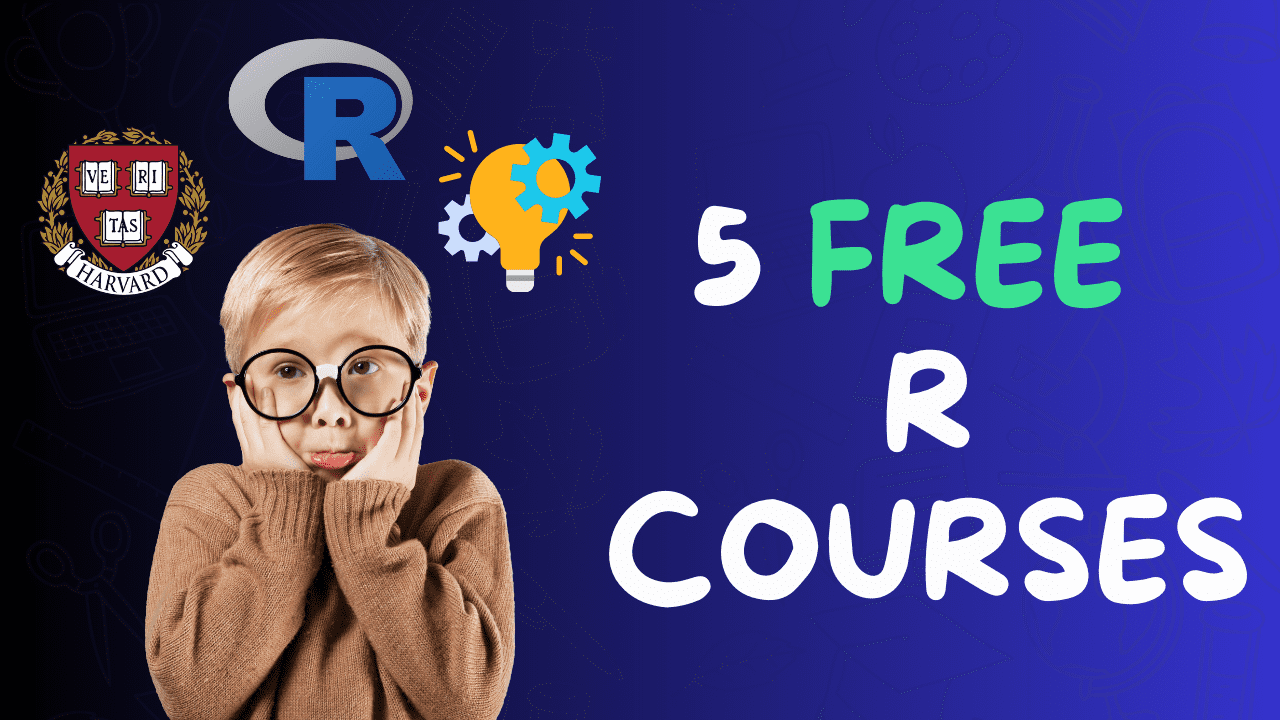
Image by Author
If you are an aspiring data analyst, data scientist, or statistician, R is a must-learn programming language. It has a ton of statistical packages, along with powerful data analysis and visualization categories. Although I’m more of a Python enthusiast myself, I must admit that R has its advantages — particularly, its extensive ecosystem for more advanced statistical modeling.
I’d recommend learning R if your focus is on applying analytics in domains such as healthcare, economics, environmental sciences, and ecology. R is also more suitable for researchers or people working in academia across multiple fields, due to its specialized statistical capabilities that no other language has.
In this article, I’m going to list 5 resources that you can use to learn R. These resources will teach you R from scratch — even if you are a complete beginner with no prior programming knowledge whatsoever.
1. R Programming Fundamentals by Stanford University
R Programming Fundamentals covers everything you need to know about R.
This course assumes no prior coding experience and takes you through the R programming language from scratch — from installing the software to creating statistical functions.
Here are some concepts that are covered in this course:
- Data structures (lists, arrays, data frames)
- Importing data into R
- Data manipulation and preprocessing
- Missing value imputation
- Data visualization with specialized R packages
- Using multiple R packages to solve a data problem
I’d recommend this course to complete beginners to programming, as it will build a strong foundation for you to go ahead and pursue a career in data science, analytics, and statistical programming.
You can audit this learning track for free on edX, although you will have to pay to get a course certificate.
2. Learn R by Codecademy
Codecademy’s Learn R learning path is another beginner-friendly R course that will take you through the language from scratch.
This course covers the following topics:
- R syntax
- Modifying data frames in R
- Data cleaning
- Data visualization
- Aggregate functions
- Joining tables
- Statistical analysis
One thing that stood out to me about this course was its interactivity.
Every lesson is paired with quizzes and projects, allowing you to put your skills into practice after learning a concept.
Also, this program has a stronger focus on statistics — introducing you to concepts like data distributions and hypothesis testing. These are must-learn topics for anyone who wants to pursue a career in the data industry.
3. Data Science: R Basics by Harvard University
Harvard University’s R Basics course is part of a larger data science certification offered by the institution.
However, you can take R Basics as a standalone course which will cover topics such as functions, data types, analysis, and visualization.
You will also learn to use R on a real dataset on crime in the United States, which makes for an interesting learning experience.
Unlike the other courses on this list, R Basics goes a step further and covers concepts such as file organization, version control with git, and document preparation with R Studio.
These are often overlooked skills that are part of a data scientist’s daily job, and learning them at an early stage in your career gives you an edge over other data professionals.
4. R Programming: Johns Hopkins University
The R programming course by Johns Hopkins University covers the basics of the language and can be audited for free on Coursera.
This learning path is taught in the style of a university lecture, and teaches you the history of R, installation, data structures, loop functions, debugging, and generating simulations.
The course also includes programming assignments and quizzes, allowing you to apply the skills learned during the lectures.
5. Introduction to Data Science with R Programming: Simplilearn
Simplilearn’s Introduction to Data Science is a 6-hour long course that will teach you to apply R for data science.
While you will learn the basics of R in this course, its focus is primarily on data science applications. You will be taught to perform data manipulation, visualization, and build machine-learning models in R.
I’d recommend this course if you’re looking to learn R specifically for data science, since you will be introduced to key machine learning concepts like regression, clustering, and time-series analysis.
Takeaways
I recommend picking one course from the above list and finishing it, as the core programming principles covered will be the same in all of them.
Once you’ve completed a course, I also suggest building an end-to-end project to apply your newly acquired R skills. If you’d like to create a data project and don’t know where to start, I recommend watching this video.
Finally, joining R communities on platforms like LinkedIn, Reddit, and Twitter will allow you to connect with other professionals who are familiar with the language.
This way, you can learn from others and get help if you are stuck on a project.
 
 
Natassha Selvaraj is a self-taught data scientist with a passion for writing. Natassha writes on everything data science-related, a true master of all data topics. You can connect with her on LinkedIn or check out her YouTube channel.
